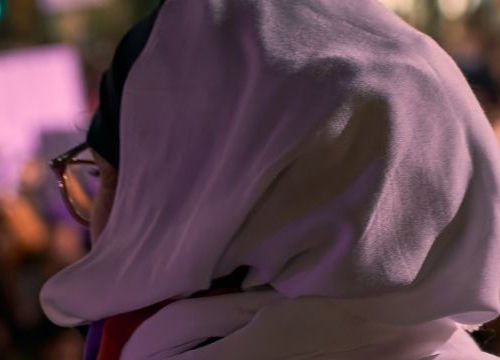To Ban or not to Ban: Religious Symbols and Women’s Rights
Human Rights Conversations


Adobe
Following the death in police custody of Mahsa Amini on 16 September 2022, protests in Iran have intensified and call for a change in Iran’s mandatory hijab law, which has been in force since 1979. The ongoing civil unrest has once again brought under the spotlight the role of religious symbols and the protection of human rights, and women’s rights in particular.
The wearing of hijabs is a particularly controversial topic which has given rise to conflicting jurisprudence in human rights law. If at the international level, the United Nations (UN) Human Rights Committee has underscored that ‘the observance and practice of religion or belief may include not only ceremonial acts but also such customs as […] the wearing of distinctive clothing or head coverings’ (General Comment 22), the European Court of Human Rights declared the French ban on wearing of ‘any article of clothing intended to conceal the face’ in a ‘public place’ is compatible with the European Convention on Human Rights.
This Human Rights Conversation organized on the eve of International Women's day, will explore the implications that legislative measures on hijabs, either banning or mandating them, have on the protection of women’s rights.
Moderator
- Stefania Di Stefano, Project Officer, Geneva Human Rights Platform
Panelists
- Nazila Ghanea, UN Special Rapporteur on Freedom of Religion and Belief
-
Ibrahim Salama, Chief, Human Rights Treaties Branch, Office of the High Commissioner for Human Rights
-
Marcia V.J. Kran OC, Member of the UN Human Rights Committee
-
Shima Esmailian, Student, MAS es in Transitional Justice, Human Rights and the Rule of Law, Geneva Academy
About Human Rights Conversations
Human Rights Conversations are a series of events, hosted by the Geneva Human Rights Platform, aimed at discussing contemporary issues and challenges related to the promotion and protection of human rights in Geneva and beyond.
Video
Human Rights Conversations : To Ban or not to Ban: Religious Symbols and Women’s Rights
This Human Rights Conversation explored the implications that legislative measures on hijabs, either banning or mandating them, have on the protection of women’s rights.








